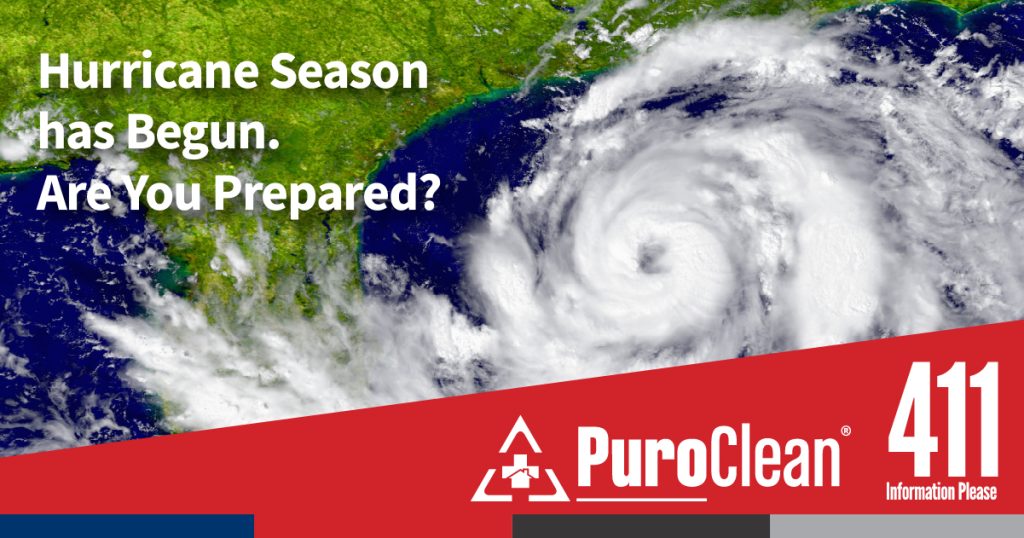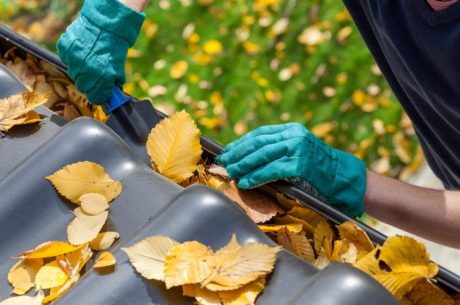
The Atlantic hurricane season officially starts on June 1 and ends on November 30. In the Eastern Caribbean and along the US East Coast, however, the peak season runs mainly from mid-August through mid-September.
A hurricane or tropical storm is a powerful and unpredictable storm that can cause immense damage along its path. Being ready before one hits is critical to stay safe and protect your property. Check out how to prepare and what to do before, during, and after a hurricane.
Create an Emergency Kit
FEMA recommends that you gather the following supplies, including:
- Water for drinking and sanitation to last at least three days
- Non-perishable food for at least three days
- Hand crank or battery-powered radio (tuned in to NOAA Weather Radio), as well as spare batteries
- Flashlight with extra batteries
- First aid kit
- Whistle to call for help
- Dust mask, plastic sheeting, and duct tape for shelter making
- Moist towelettes and garbage bags for sanitation • Pliers or wrench to turn off utilities
- Can opener
- Local maps
- Cell phone with an extra charger
Hurricane Safety Tips — Before
Check out these preparation tips on how to keep yourself and your family safe during hurricanes:
- Secure your property. Repair any loose shingles or tiles on the roof; clean gutters; lock windows and doors; trim trees and shrubs; and secure any loose outdoor furniture or other objects.
- Take pictures of the exterior and interior of your home. Take pictures of every room, and document your contents and valuables.
- Learn your area’s flooding risk and community hurricane evacuation routes. Know the geographical location you live in.
- Create a family evacuation plan. Determine a meeting place for your family and routes to get there. Plan how to get in touch with your family if separated. Know where you’ll go if you must evacuate, such as a shelter.
- If you don’t have flood insurance, get a policy now. Regular homeowners insurance policies don’t cover flood damage.
- Find out whether your property is flood-prone due to its elevation level.
- If there are levees and dams in your area, find out if they pose a hazard to you when the storm hits.
- Store copies of important documents in your disaster kit, such as proof of ownership of any property.
- Back up the data on your electronic devices to ensure they’re secure.
Hurricane Safety Tips — During
Here are essential tips to protect yourself and your family members during a hurricane:
- If authorities advise or order you to evacuate your area, take your emergency disaster kit and leave immediately. Strictly follow posted evacuation routes and do not try to take shortcuts.
- If you are outside and the storm approaches, get indoors as soon as possible to avoid being hit by flying debris.
- If your home is on low-lying ground, move to higher ground. If you’re in a mobile home, go to the nearest safe shelter.
- While indoors, stay away from windows, skylights, and glass doors. Find a safer spot to stay in, such as an interior room or a bathroom on the lower level.
- During the storm, winds and rain may damage electrical wiring. To avoid fire hazards and electrical shocks, don’t use electrical appliances.
- If your home is at risk of flooding, turn off electricity at the main circuit breaker. Don’t turn on electricity until local officials have advised you to do so.
- Never use gasoline-powered or charcoal-burning devices inside to prevent carbon monoxide poisoning. Keep those devices outside.
- If trapped in a building that’s flooding, go to the highest level. Don’t climb into a closed attic, as rising floodwater may trap you.
- Lightning is also a safety risk. Stay safe from lightning in your home during a storm by NOT using the shower, phone, or electrical equipment.
- Be aware that the eye of the storm may pass over your area, during which the storm will calm. The storm can start again without warning, however.
- Stay indoors until the local officials have announced that the storm is over. Listen to the radio or turn on the TV (if safe to do so) to get the latest updates.
Hurricane Safety Tips — After
Here’s how to stay safe after a tropical storm has passed:
- Listen to authorities for information and special instructions.
- Never walk or drive on flooded roads or through the water. Just six inches of fast-moving water can knock you down, and one foot of moving water can sweep your vehicle away. Floodwater may also contain contaminants, dangerous debris, or downed power lines.
- Enter a damaged building only after a professional has inspected the electrical system, gas lines, and plumbing for damage.
- Take photos of any property damage and contact your insurance company for assistance. Wear protective equipment such as gloves, safety glasses, rubber boots, and masks when inspecting your home.
- Don’t touch wet electrical equipment, especially if you’re standing in water.
- Throw out food that has been exposed to floodwaters or has not been maintained at a proper temperature. When in doubt, throw it out.
- Don’t drink tap water if you’re not sure it’s safe.
Finally, make sure to download a copy of this handy Emergency Preparedness Document and use it to gather and record important numbers, such as your property or medical insurance provider, A/C repair service, etc.



 PuroClean of Wakefield
PuroClean of Wakefield